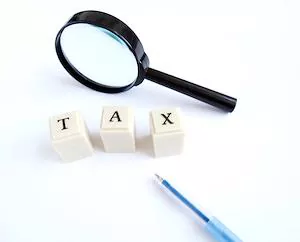The Federal Tax Bureau created the “electronic invoice”

The highlights of this regime are mentioned below:
When is it possible to adhere to this regime? The request to adhere can be filed before the tax authority as of January 16, 2006.
Which transactions have certificates that can be issued electronically? The transactions included are: sale and purchase of movable goods, lease and services agreements, lease of goods, contracts by means of which one party agrees to construct or manufacture a thing and advance payments that freeze prices.
Who can opt to adhere to this regime? Those registered at the Value Added Tax and given that they are incorporated or have requested their incorporation to the special regime of issuance and keeping of duplicates of electronic certificates, set forth by General Resolution of the Federal Tax Bureau No 1361.
Which certificates are covered by this regime? Invoices or equivalent documents class “A” and “B” and credit and debit notes class “A” and “B”.
Which documents are excluded? Among others, (i) export invoices (invoice class “E”), (ii) invoices class “B” supporting transactions with final consumers in which the good or the service had been delivered or rendered in a store, office or establishment, (iii) certificates of transactions that require a special treatment, i.e.: (a) stock agents, (b) concessionaires of the national airport system or (c) services rendered for the use of air stations corresponding to domestic and international flights; and (iv) certificates issued by the so-called “tax controllers” (“controladores fiscales”).
How can the adherence to this regime be made? The request of adherence should be made by means of electronic transfer of data through the web of the Federal Tax Bureau (www.afip.gov.ar). The tax authority will accept or reject the request in a twenty day term, and can request additional information, if deemed necessary. The Federal Tax Bureau will notify the acceptance of the request through its web and the rejection, among others, by a registered letter with acknowledgement of receipt or a notification in the domicile of the taxpayer.
What is the minimum period of permanence in this regime? There is a minimum period of one year as of the publication of acceptance on the web. The incorporation to the regime will be automatically renewed, without need of an express request of the taxpayer. The permanence in the regime is subject to certain conditions, i.e., that the tax payer is not declared in bankruptcy, is not formally accused or criminally charged, has not incurred in lack of compliance with any of its tax obligations, etc. The Federal Tax Bureau may exclude tax payers who do not register requests of authorization for the issuance of certificates during twelve consecutive months. Furthermore, the tax payer can also request its own exclusion from the regime after twelve months as from its inclusion. It should be pointed out that those who request to be excluded cannot request again to adhere for three years.
What is the procedure for the issuance of the certificates? Tax payers who have adhered to the regime must prepare class “A” and/or “B” certificates and request the Federal Tax Bureau via web to authorize the issuance of such original electronic certificate. In the case of class “A” certificates, an authorization for every single certificate must be requested. In the case of class “B” certificates, if they are for more than $ 1,000, a register for each one must be requested; but if they are for a lesser amount, a register for a group of certificates can be requested, provided a detail of the amount of each one is informed. It should be highlighted that electronic certificates will not have tax effects against third parties until the Federal Tax Bureau provides the E.A.C. (Electronic Authorization Code).
What are the penalties for the lack of compliance with the regime? The punishment regime is the one applicable to taxpayers who issue standard certificates and do not fulfill any of their obligations i.e. fines and/or closures.
This insight is a brief comment on legal news in Argentina; it does not purport to be an exhaustive analysis or to provide legal advice.